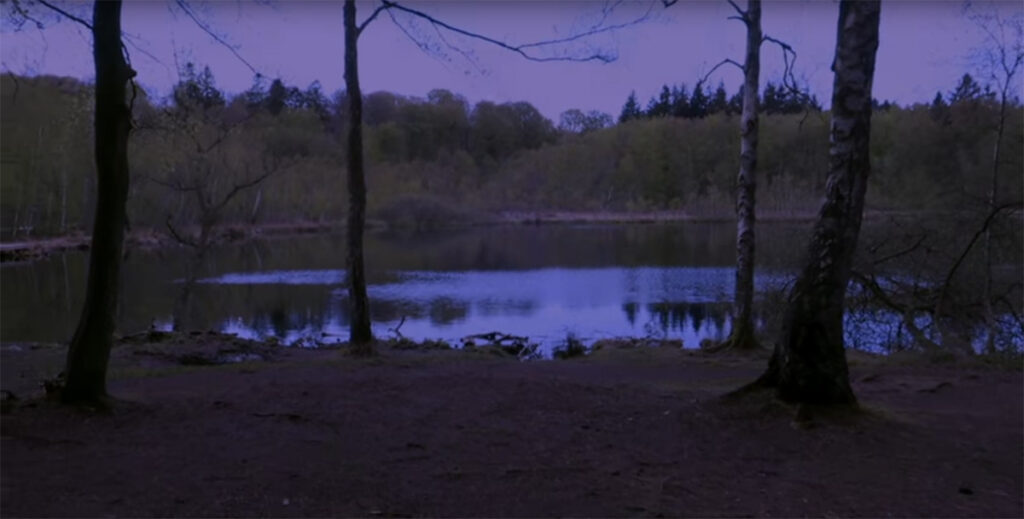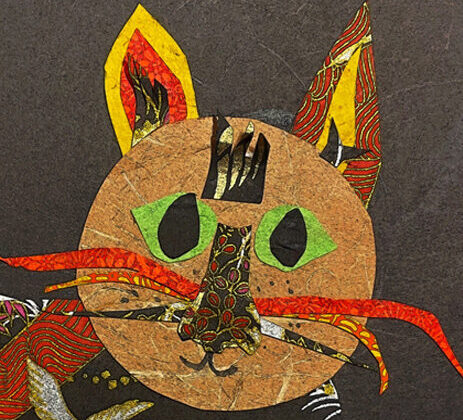Ray Rasmussen
Latest Match: England versus Denmark

“Bing!” sings my computer announcing an email from my pal Chris, who grew up in England:
Hi Ray. I know you’re of Danish descent and want to be the first to send you sympathy about Denmark losing in the world cup quarter finals to England. The melancholy of massed Danes was tangible in the stadium. The only consolation I can offer is from the Stoics: “Suffering often builds character.”
I reply by email:
Dear Chris,
It’s likely you too have Danish genes, since by the late 9th century, the Vikings had overrun most of the Anglo-Saxon kingdoms that constituted England at the time. Still, you were raised in England and probably don’t realize it’s likely there was as much melancholia amongst the Danes before the game as during and afterwards. As the Danes like to say, “Melankoli er” (melancholy is).
The Danes don’t limit their melancholia to lost soccer games. Even prior to a mouth-watering breakfast of Fishefrikadeller (fish cakes with raw onions), they often start their day by reaching into a bowl containing slips of paper on which are written various melancholia-related moods such as sadness, sorrow, unhappiness, woe, desolation, dejection, depression, despondency, gloominess and misery. So if at random they pick “despair,” they’ll spend the remainder of the day lolling into that mood. Some of the more stubborn Danes insist on sticking with wherever they draw for weeks, months or even years. As the Danes like to say, “Øvelse skaber perfekt mørke” (Practice leads to perfect darkness).
Unfortunately for Brits like yourself, only Danes recognize the relative positiveness of these moods. For example, while you might call gloominess a negative, the Danes view it as better than the alternatives since they spend most of their time in the darker moods. As they would put it, “Dyster er det høje loft i kælderfangehullet“ (Gloom is the high ceiling of the basement dungeon).
The Danes get help with this gamut of moods by watching Ingmar Bergman films. A common Bergman theme is a somewhat slumped man stripping naked and shuffling, head down, shoulders hunched, into a fjord, and disappearing under the icy-black water, leaving only a trail of bubbles and a pile of black clothing to show that he’d ever existed. Meanwhile his Danish dog sits on the beach howling having realized that his meal ticket is gone. In such films, Bergman tends to cut to the family left behind. They sit in the near darkness of a single lit candle, the only one they can afford, and eat the typical evening meal of Fishefrikadeller, this time fish cakes smothered in garlic. They claim, “Fishefrikadeller kvalt i hvidløg hjælper mig med at komme i det rette humør” (Fishefrikadeller smothered in garlic helps me get into a proper mood.)
As a foreign observer, Chris, you would hardly know which of the many melancholic states the Danes were in. It would be a mistake to attribute that state to something as simple as a loss of a game. No, they were probably hoping for a loss, so as to further fortify whatever mood they got on their morning draw. Their thought on the matter: “At miste passer til mit humør” (Losing suits my mood).
By the way, since you evidently watched the game, did you notice what the British fans were eating? Mash and bangers, I’d bet. Most Danes wouldn’t stomach that dish unless they were having a difficult time reaching their mood state for the day.
What puzzles the Danes most is how the Brits can avoid being melancholy when relegated to a lifetime of mash and bangers. And how the Brits find joy after a loss by roaming around post-game and beating up the opposition fans and even their fellow Brits. “No,” the Dane’s would insist, “Vi foretrækker den slapphed, der kommer fra melankoli frem for glædelig vold” (We prefer the lassitude that comes from melancholy to joyful violence).
I would sign this with “Cheers” except it’s not in my nature.
Gloom and Doom.
Ray
weather forecast
a life of
rain
Note: Apologies to my Danish ancestors and the Danish people. I know that you’re a people as happy as those of other nations. Indeed, Denmark was recently ranked second among nations in terms of happiness. And I do remember my father, Vail, cracking a smile once as I grew up, and my Grandfather, Marius, who admonished me for crying when I was 5-years-old. I remember him saying, “Tårer er spild. Vælg altid melankoli, mit barnebarn,” (Tears are a waste. Always choose melancholy, my grandson.” If this haibun has made you long for a deeper understanding of the Danish culture, try the uplifting “Ramund” sung by Myrkur. It’s about Ramund, a man who goes to battle the Jætter (giants) and then sails to the emperor to take his daughter to marry and then decapitates the emperor.
About the Author

Ray Rasmussen is retired and enjoys hiking, photography, and canoeing with his partner, Nancy. They reside in Halton Hills, Ontario, Canada. He previously served as editor in chief for Haibun Today. His haiku, haiga and haibun have appeared in numerous journals and anthologies. Ray’s haibun blog: https://rays-blog.ca/

Wonderful!
the threat of rain
moving across Denmark
my map darkens
Thanks for the comment, John. And I confess that when in the UK in 2018 and 2019, besides enjoying the walks in places like Pembrokeshire and Snowdonia and the Pennine Way, I also enjoyed many traditional UK meals, including mash and bangers, which they tend to offer to us tourists. Also liked the dogs in the restaurants. You can tell I was there pre-covid.